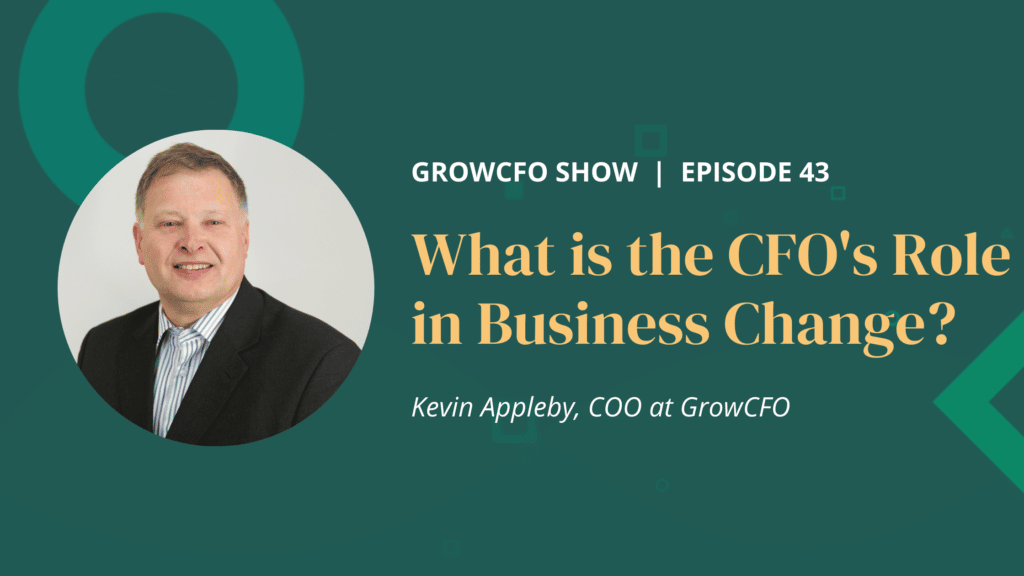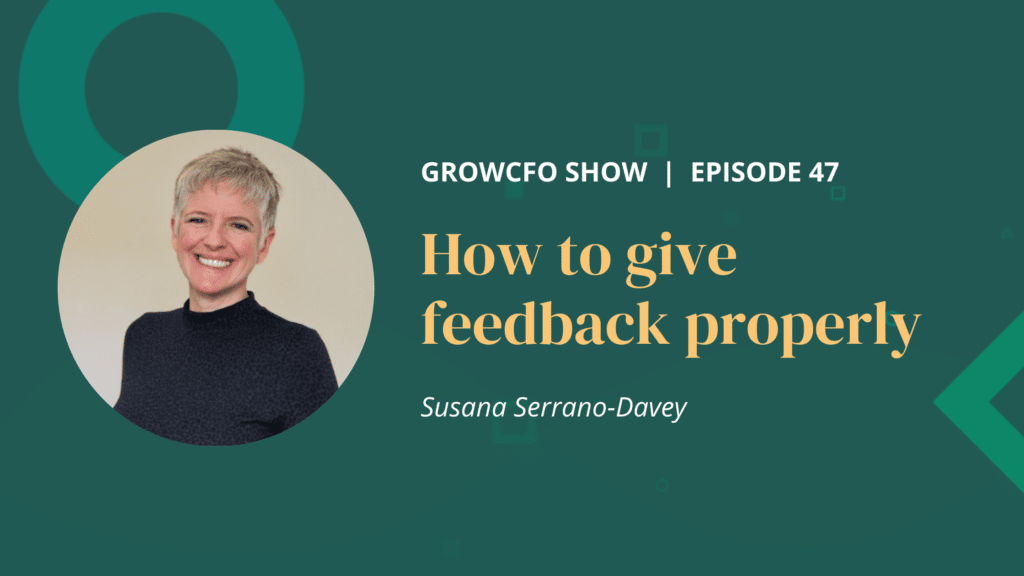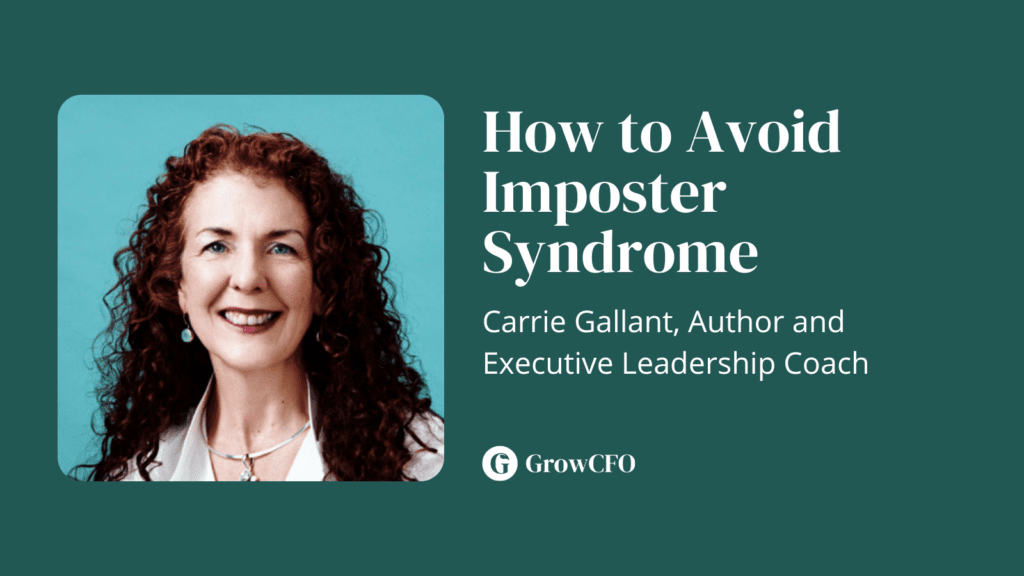#43 What is the CFO’s role in Business Change?


Change is an important part of the CFO role. Change is a big part of a transaction, a business restructure or a systems implementation. The CFO is involved in leading all three. We look at each of these in this weeks podcast. The CFO’s role in business change can’t be underestimated, the CFO is a catalyst for change.
GrowCFO’s future of finance functions group meets every Tuesday over Zoom. I’m looking at Change and specifically how it relates to finance transformation on the last Tuesday of every month.
The CFO’s role in business change is covered as one of the core competencies of the CFO. The CFO as a catalyst of business change forms a key element of the GrowCFO competency framework.
The CFO’s role in business change is in 3 areas
- The transaction, after a merger or acquisition, or before a divestment
- Systems project, putting new IT into finance or the wider business
- Driving a step change in performance, reshaping the business model
The transaction
As CFO you will have a major involvement in any transaction and a key part in making it happen. After the transaction you need to be involved in the business change:
- After a merger or acquisition you need to drive integration of the new business, particularly in the back office
- Before a divestment you need to make sure the bit of the business you are selling is properly decoupled, and there’s no ongoing dependency for systems and processes with the parts of the business you are retaining
Step change in performance
The CFO is at the heart of driving business performance. As CFO, its you job to look for opportunities to improve the bottom line. The CFO’s role in business change could involve you in one or more of the following:
- A business restructure
- Cost reduction, reducing the cost base of the business
- Driving a Zero Based Budget. To direct spend to the key business objectives you and your C Suite colleagues are committed, and eliminate spend that isn’t focussed on these.
You have a key role in decisions concerning pricing and product mix. You need to know which customers and products are profitable and which are not. The CFO view of the best parts of the business might be very different from the sales and marketing view. So, you need to:
- Understand the economic engine, not the P&L account
- Know which products & services drive cost. High margin might look attractive to the sales team, but if the product is low volume and there are lots of demands on customer service time then the overall contribution might be negative.
Systems project
You have an important role leading business change in a systems project. This might include:
- A Finance Transformation. Most finance functions have big scope to modernise and automate. Finance is your home turf. You need to get change right in finance to be trusted with change in the wider business.
- Wider business change, which will nearly always impact you and your finance team
Delivering business benefits rarely comes from system changes, it more likely comes from changes relating to people and process that surround the system. People change is the hardest part.
As CFO you have a vital role in people change. Leading change is all about leading people through the change process.
Learning more about the CFO’s role in business change
If you want to deliver a successful business transformation then you need to understand how to lead change. John P Kotter outlines an 8 step process in his book Leading change
The sessions I’m leading each month for GrowCFO’s future of finance functions group is exploring the Kotter 8 step process. One step at each month’s session.
Dr Kotter cultivated the 8-Step Process for Leading Change from over four decades observations of countless leaders and organizations as they were trying to transform or execute their strategies. He identified and extracted the success factors and combined them into a methodology, the award-winning 8-Step Process for Leading Change.
- Create a sense of urgency
- Build a guiding coalition
- Form a strategic vision
- Enlist a volunteer army
- Enable action by removing barriers
- Generate short term wins
- Sustain progress
- Embed the changes
If you want to find out more about Kotter here’s a great article
Why not take the growCFO CFO competency framework?
The GrowCFO Competency framework is part of our library of training programmes for premium members. It starts with a self assessment. This allows you to assess your own capabilities in each of the following skills:
Foundation skills:
- Governance and Control
- Operational driver
- Financial Planning and Analysis
Implementation skills:
- Strategic Business Partner
- Catalyst for Change
- Fundraising and M&A
Impact skills:
- Leadership
- Commercial mindset
- Soft skills
You will receive an email which contains your results and your peer group benchmarking report. This report will include an action plan to help you address each of your identified skills gaps. There are training modules in each of the competencies and regular Zoom workshops you can join in covering aspects of each competency area.
Find out more about GrowCFO
If you enjoyed this podcast you can subscribe to the GrowCFO Show with your favourite podcast app. The GrowCFO show is listed in the Apple podcast directory, Google podcasts and many others. Why not subscribe there today? That way you never miss an episode.
GrowCFO is a great place to extend your professional network. You can join GrowCFO as a free member today and take part in our regular networking events and webinars.
Premium members also have access to our extensive training centre. Here you can enrol in our flagship Future CFO or Finance Leader programmes.
You can find out more and join today at growcfo.net
Podcast: Play in new window | Download





Responses